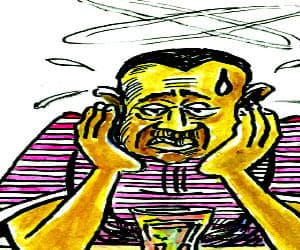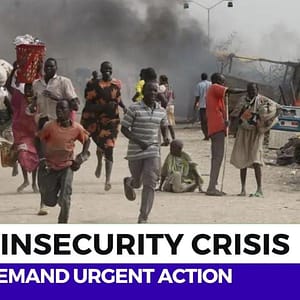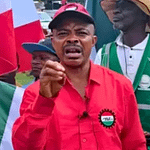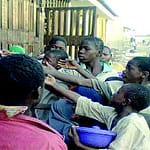The air in Benue is heavy, thick not just with the dust of displacement, but with unspoken fear and simmering desperation. The soil, repeatedly stained by tragedy, tells a grim story of vulnerability. In the face of relentless attacks and what many perceive as governmental inertia, a critical question hangs in the balance: how long before a people, pushed to the absolute brink, decide the only hand capable of offering protection is their own? Cutting through the silence, former Senate President David Mark delivers a chilling prognosis directly to the Federal Government: neglect them further, leave them exposed, and the fundamental instinct for self-preservation will force residents to defend themselves, whatever the cost. The fuse, he warns, is getting short.
Choose the option that best fits the overall feel and focus of your article. They all aim for a serious, creative, and urgent tone by using descriptive language and metaphor to convey the gravity of the situation.
Table of Contents
- The Crossroads of Desperation When Security Fails and Survival Calls
- Echoes of Abuja’s Absence The Vacuum Inviting Chaos
- The Eleventh Hour Call Reclaiming Peace Before the People Take Matters
- Urgent Mandate for Abuja Laying the Groundwork for Security Not Self Help
- Insights and Conclusions

The Crossroads of Desperation When Security Fails and Survival Calls
There comes a chilling moment when the shield sworn to protect grows thin, then cracks, revealing utter exposure to the wolves outside the gate. This isn’t just a physical breach; it’s an existential one, a severance of the social contract where the state’s fundamental promise – security for its citizens – dissolves into thin air. In such a vacuum, the primal instinct takes over. The luxury of waiting, of trusting in institutions that have proven absent or ineffective, vanishes. Survival strips back complexities, leaving a stark, terrifying equation: face annihilation or find the means to push back. The conversations shift from demanding state action to grim, hushed talks about what happens when that action never materializes. It is the bleak arithmetic of desperation, where the only perceived recourse is the stark, unauthorized defence of life itself.
This threshold moment, born from layers of unanswered calls for help and accumulating tragedy, forces communities into a perilous choice. It’s a Tightrope walk over an abyss: on one side lies continued vulnerability hoping against hope for rescue; on the other, the dangerous path of becoming your own army, fraught with unpredictable consequences. The failure of security doesn’t just leave people unprotected; it forces their hand, pushing them into a space where the lines between victim and fighter blur. The perceived options, stripped down by pressing danger, become terrifyingly simple:
- Passive endurance leading to potential catastrophe.
- Active self-preservation, challenging the state’s monopoly on force.
- Community-based defense initiatives as a last, resort barricade.
It is a space where survival isn’t guaranteed by law or order, but must be fought for, sometimes with empty hands, sometimes with whatever can be mustered, a grim reflection of a state unable or unwilling to fulfill its most basic duty.
| Crisis Point | Implicit State Promise | Citizen Reality (Security Failure) |
|---|---|---|
| Threat Appears | Protection will arrive | Threat intensifies, no protection visible |
| Lives Endangered | Intervention guaranteed | Individuals/Communities left exposed |
| Survival Imperative | State defends its people | People must defend themselves or perish |
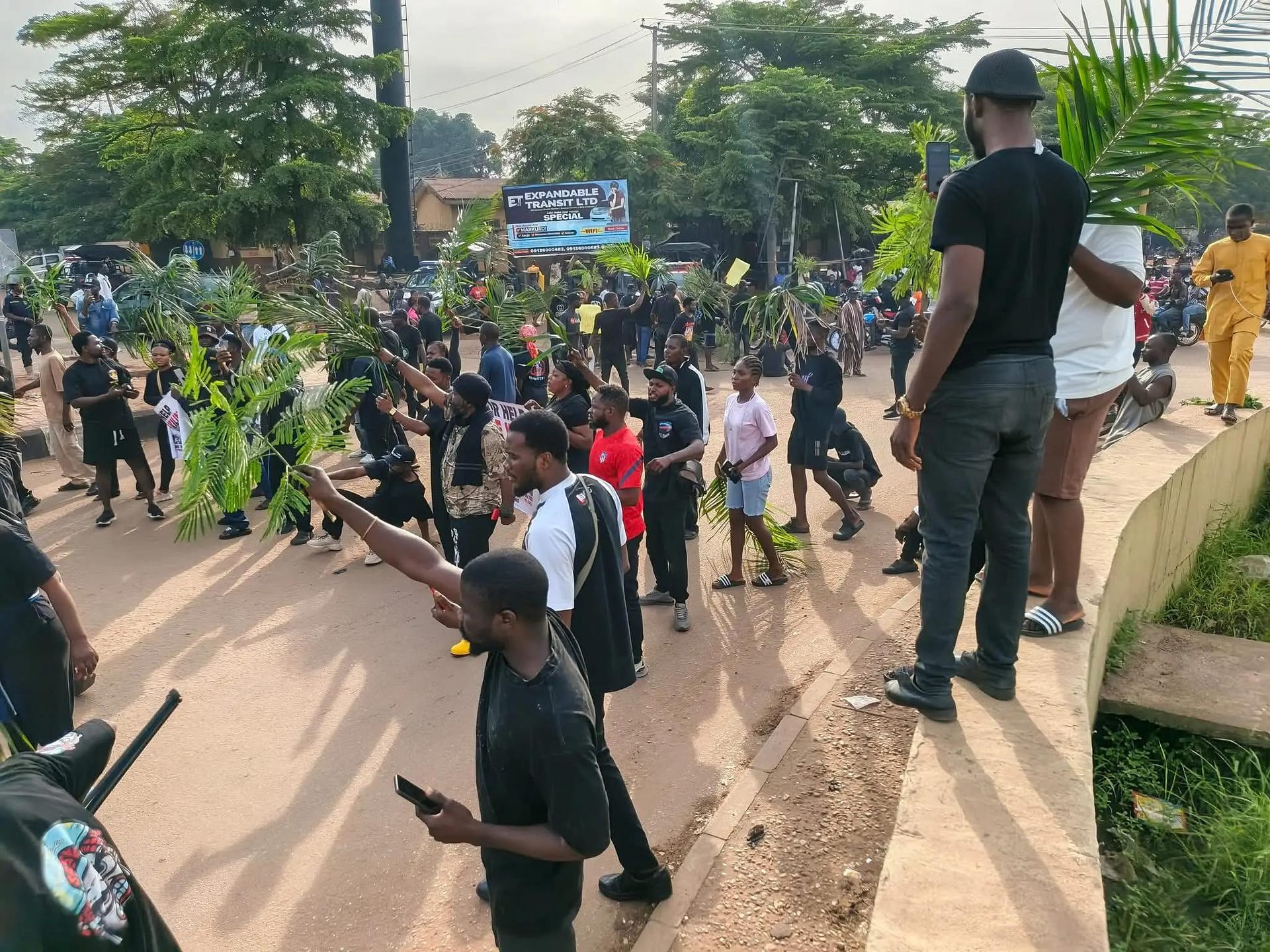
Echoes of Abuja’s Absence The Vacuum Inviting Chaos
The silence emanating from the nation’s capital isn’t merely the absence of voice; it’s a palpable void, a chilling emptiness where intervention and assurance ought to reside. In the battered communities where lives hang precariously in the balance, this vacuum feels like a deliberate turning away. It’s the echo of promises unheard, the ghost of authority unfelt. When the shield meant to protect remains absent, those exposed instinctively reach for whatever they can find, not out of aggression, but out of sheer, primal necessity. This is the fertile ground where desperation takes root, where order frays at the edges, leaving communities to fend for themselves in the face of relentless tides of violence. The air fills not with the expected sounds of state security, but with the rising murmur of fear and the stark, unsettling contemplation of taking matters into one’s own hands. This perceived abandonment breeds a specific kind of despair, one that whispers dangerous possibilities.
- A State of Siege: Living under constant threat with little visible protection.
- Erosion of Faith: The slow, painful loss of belief in the state’s willingness or ability to safeguard its citizens.
- The Imminent Shift: The precarious tipping point where survival instincts override reliance on external authority.
This isn’t just a local crisis; it’s a stark symptom of a foundational failure, the dangerous consequence when the center appears to hold its breath while the periphery crumbles. The vacuum left by perceived governmental inaction becomes a magnet for chaos, inviting a breakdown where formal structures yield to the raw logic of survival. The stark reality is that unchecked violence, met with prolonged silence, leaves vulnerable populations with an impossible choice. Forced self-defense, however perilous, begins to look less like rebellion and more like the only remaining path when the traditional avenues of protection seem irrevocably blocked. The table below illustrates the unfolding dynamic:
| Catalyst | Response Vacuum | Potential Outcome |
|---|---|---|
| Persistent Attacks | Limited Federal Presence | Rising Desperation |
| Lack of Protection | Absence of Reassurance | Contemplating Self-Help |
| State’s Silence | Erosion of Order | Invitation to Chaos |
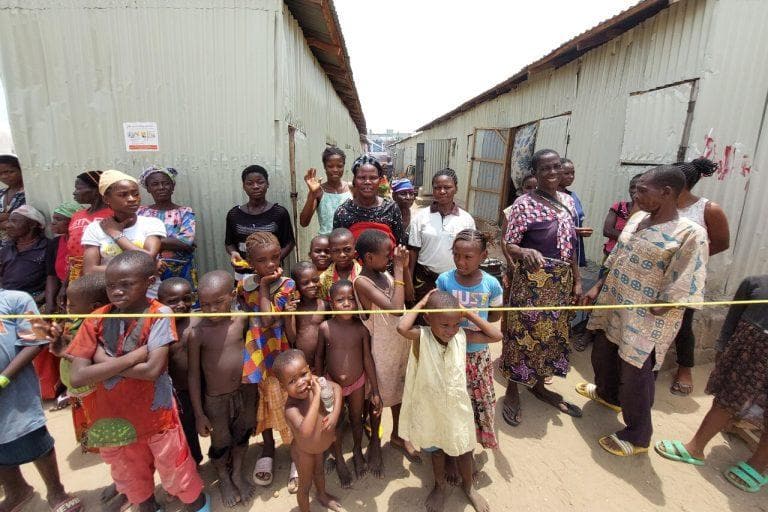
The Eleventh Hour Call Reclaiming Peace Before the People Take Matters
Beneath the surface of anguish that blankets Benue lies a dangerous undercurrent: the erosion of faith in conventional safeguards. When homes are left vulnerable and cries for help seem to echo unanswered in the corridors of power, patience wears thin. Senator David Mark’s recent pronouncement isn’t merely a political statement; it’s a
stark, eleventh-hour warning painted against a sky growing dark with desperation. It signals that the community, pushed to the precipice by relentless violence, feels it is running out of options, contemplating a grim path where the burden of security falls squarely, and tragically, upon their own shoulders.
This potential shift from appealing for external intervention to enacting internal defence mechanisms is a critical, perilous juncture. It speaks volumes about the breakdown of the implicit social contract and the terrifying reality faced when formal systems appear insufficient or slow. The consequences of allowing this sentiment to solidify are profound, risking not just further bloodshed, but a complete fracturing of trust and order. The alternatives, while fraught with peril, are being weighed in the hearts and minds of those who feel they have lost everything but the

Urgent Mandate for Abuja Laying the Groundwork for Security Not Self Help
The cries from fields and villages under siege echo loud enough to reach the marbled halls of power. The very foundation of statehood rests on its ability to guarantee the safety of its citizens. When that bedrock crumbles, even slightly, the dangerous allure of self-preservation arises – a primal, chaotic response born out of desperation. The current reality, where communities face relentless threats with seemingly inadequate state protection, forces a grim introspection. It is not merely an inconvenience or a localized problem; it is a fundamental challenge to the social contract. The longer this situation festers, the stronger the argument becomes, in the minds of the unprotected, that the invisible lines dividing citizen from combatant are less meaningful than the urgent need to survive. This gateway, if opened, leads down a perilous path where law and order are supplanted by vigilante justice and cycles of vengeance, a state diametrically opposed to the organized, state-sponsored security every citizen is entitled to.
Therefore, the imperative from Abuja is crystal clear and requires immediate, decisive action, not just promises. Laying the groundwork for genuine security across the nation is the singular, non-negotiable task. This involves more than just reacting to crises; it demands proactive strategies, robust intelligence gathering, swift and equitable justice, and equipping security forces appropriately. It demands accountability for failures and visible commitment to protecting the vulnerable. The alternative – a populace driven to defend itself – is a failure of governance with catastrophic implications.
- Investing strategically in intelligence networks, not just manpower.
- Swiftly and visibly apprehending perpetrators of violence.
- Ensuring accountability within security agencies.
- Establishing functional community security liaison mechanisms.
- Addressing root causes like poverty and land disputes concurrently.
The time to mend the broken shield is now, before the shards are picked up by those who feel they have no other choice.
| Action Focus | Desired Outcome |
|---|---|
| Proactive Policing | Reduced Attacks |
| Justice & Accountability | Deterrence |
| Community Trust | Intelligence Flow |
Insights and Conclusions
As the shadows of violence continue to darken the valleys of Benue, the urgent call from David Mark resonates like a drumbeat in the hearts of those yearning for peace. When the protectors become the protected, and the government’s silence leaves communities vulnerable, the fragile thread holding society together threatens to snap. It is a pivotal moment – one where dialogue must rise above despair, where justice must outshine vengeance, and where the voices of the people are heard before desperation leads to self-defense in the most tragic of forms. The Benue massacre is not just a story of loss; it is a clarion call for action, empathy, and an unwavering commitment to restore harmony before the cycle of violence consumes all hope.




